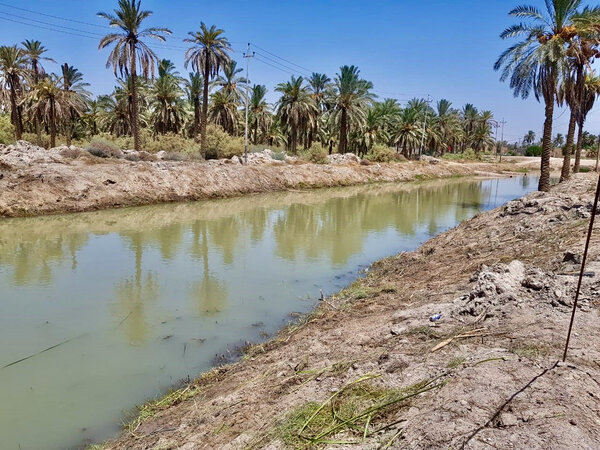WFP expands its work in support of vulnerable people in the south of Iraq
BAGHDAD – Responding to rising humanitarian needs in southern Iraq, the United Nations World Food Programme (WFP) has expanded its activities in the region to support an additional 33,500 vulnerable people. One year after the re-opening of its Basra office, WFP has set up new projects to create work opportunities alongside its existing school feeding programme
This expansion is part of WFP’s response to the COVID-19 pandemic to mitigate the socio-economic effects of the global crisis on the most vulnerable. In Basra, and across the country, WFP launched new urban livelihoods projects to create short-term work opportunities for people who lost their jobs so they can start working again and provide for their families. The projects also benefit the entire community as they are focused on rehabilitating or creating community assets such as renovating schools and medical centres, cleaning streets, planting trees, and more.
WFP has also launched rural work and training projects for the first time in Basra and Thi-Qar governorates, helping people grow and sell their own food, including small business grants for women. The livelihoods projects include irrigation, to help bring back water to communities in the hotter, drier south of Iraq, where climate change is hitting hard. WFP’s rural and urban livelihoods projects are helping enhance people’s resilience in the southern governorates, thanks to the support of Germany, France and other key partners.
As for its existing school feeding projects, WFP and the Ministry of Education are now working on resuming the programme in the 2020-2021 academic year. Complementary activities for students will be included such as hygiene awareness, nutrition and physical exercise. Since WFP opened its office in Basra last autumn it has been supporting school feeding in the south benefiting 107,000 children in Basra, Thi-Qar, Muthanna and Misan. Around 400 jobs were created in the local communities, supporting bakeries, warehouses and more.
WFP is also carrying out – through a dedicated new conflict sensitivity specialist – research and providing insight on its potential contributions to social cohesion, principally in the south of Iraq and in Ninewa. This follows the joint research that WFP and the Stockholm International Peace Research Institute (SIPRI) conducted last year.
“This initiative is the first of its kind among WFP offices,” said WFP Deputy Representative in Iraq Asif Bhutto. “The pioneering research enhances the conflict sensitivity of all our programmes, aiming to foster participation and social cohesion to bring communities closer together, and strengthen capacity with the government.”
WFP is analysing how its projects can help people avoid adopting negative coping mechanisms, such as conflict-related means of earning an income. The new findings will help inform WFP’s activities, to better support people in the south of the country and beyond. Building on the expansion in 2020 in response to people’s needs, WFP plans to further scale up its new resilience projects alongside School Feeding in southern Iraq in 2021.
# # #
The United Nations World Food Programme is the world’s largest humanitarian organization, saving lives in emergencies, building prosperity and supporting a sustainable future for people recovering from conflict, disasters and the impact of climate change.
Follow us on Twitter @WFP_Iraq @wfp_mena @wfpgovts

